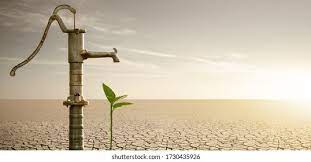Climate Vulnerability
In recent years, Pakistan has confronted an escalating array of challenges stemming from climate change, posing a significant threat to its socio-economic landscape, environment, and public health. Situated in a region highly susceptible to climate variability, Pakistan faces a myriad of climate-related adversities, including extreme weather events, water scarcity, glacial melt, and rising temperatures.

Impact on Agriculture
The impacts of climate change reverberate across various sectors, amplifying existing vulnerabilities and disrupting livelihoods. Agriculture, a cornerstone of Pakistan's economy, bears a substantial brunt. Erratic rainfall patterns and prolonged droughts disrupt farming cycles, jeopardizing food security and exacerbating rural poverty.

Water Scarcity
Moreover, the country's water resources face unprecedented strain. Glacial melt in the Himalayas, combined with erratic monsoon patterns, has led to water scarcity issues, affecting both urban and rural areas. This scarcity amplifies socio-economic disparities, as marginalized communities bear the disproportionate burden of water shortages.

Government Initiatives
Pakistan's efforts to address these challenges are multifaceted. The government has initiated various adaptation and mitigation measures, including afforestation projects, the promotion of renewable energy sources, and policy frameworks aimed at climate resilience. Collaborative initiatives with international organizations and agreements like the Paris Agreement underscore Pakistan's commitment to combating climate change on a global scale.

Challenges and Hurdles
However, despite these efforts, significant hurdles persist. Challenges in implementation, resource constraints, and the need for widespread awareness and behavioral change pose ongoing obstacles in effectively combating climate change.

Community Involvement
The role of communities and grassroots organizations is pivotal in building resilience. Localized initiatives focusing on water conservation, sustainable agriculture practices, and climate education play a crucial role in mitigating the impacts of climate change at the grassroots level.

Future Outlook:
Looking ahead, the roadmap for Pakistan involves a concerted effort across sectors, emphasizing sustainable development practices, fostering climate-resilient infrastructure, and prioritizing adaptation strategies that protect vulnerable populations.

Call for Sustained Effort
In conclusion, Pakistan stands at a critical juncture in its battle against climate change. While progress has been made, concerted and sustained efforts, both domestically and through global collaboration, are imperative to navigate the challenges and build a more resilient future for the nation amidst the changing climate scenario.




You must be logged in to post a comment.